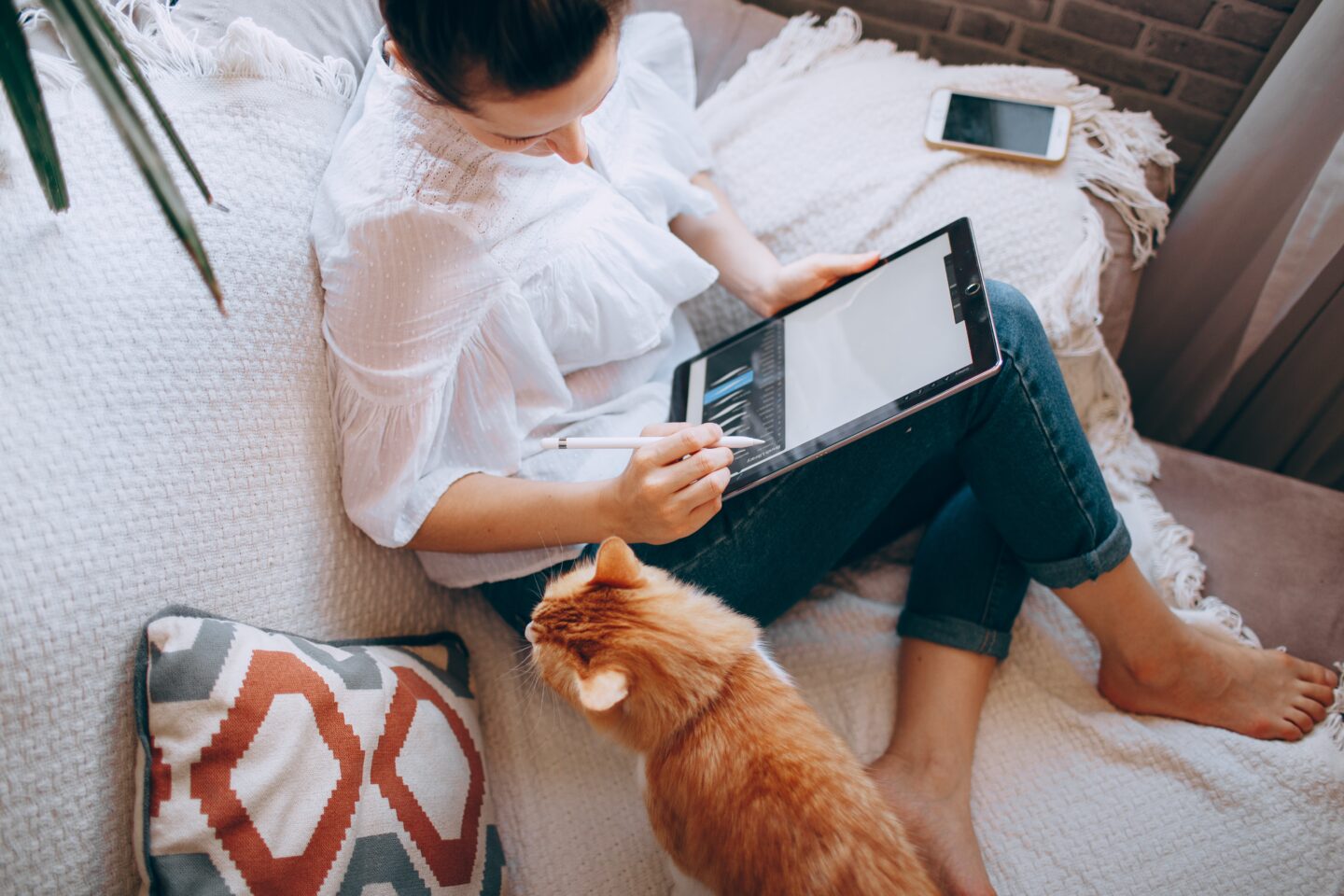
There’s so much talk about the importance of employee wellbeing in the workplace. This is brilliant. At least some organisations are recognising how important this is.
1 in 4 people will experience a mental health problem of some kind each year in England. Mind.
However, recently, I’ve been chatting to a few freelancers, many of whom appear to be battling mental health struggles. And it made me think, actually, what resources are out there for self-employed people?
Here’s what I found.
There isn’t much support. It’s kind of all on you to take care of yourself, with the help of a few targeted organisations.
Whilst employees often have work schemes and measures in place to make sure they look after themselves, freelancers don’t.
As of July 2023, there were around 4.24 million self-employed workers in the United Kingdom.
I genuinely can’t find anything other than the usual mental health support apps, charities, helplines and hundreds of bog-standard guides on how to manage your mental health if you’re freelance.
Over one-third of freelancers surveyed said they are highly stressed, with around 32% saying they are anxious or depressed. IPSE (the Association of International Professionals and Self-Employed).
What are the main things freelancers worry about?

It’s no secret that freelancing has ups and downs. One minute, you’re swamped. The next, you’re literally begging for work. It’s not plain sailing. You have to manage your finances, taxes and admin. And sometimes, it’s all just too much to juggle! Some of the main things self-employed people worry about, according to mentalhealthatwork.org, include unpredictable finances, not being prepared for retirement, and not being paid on time. This is just the tip of the iceberg.
So, what’s a freelancer to do if they want to take care of their mental health?
I’d recommend having a plan.
Design your own mental health policy

Pretend you work in an office. There’s an employee mental health manifesto that all managers and employees use and follow. Except you don’t work in an office, you work for you. So, make up your own personal mental health freelancer policy.
Literally, create a document and write down a list of rules you want to follow. Include some deal breakers, e.g. things you will not do because you know they’re detrimental to your mental health.
Next, include some well-being activities you will agree (with yourself) to undertake regularly. Simple things that will help you be more productive, less stressed and more mentally balanced. Like making sure you go out for a walk every day, for example. Or taking a five-minute mental break every half an hour, whatever works for you.
It may also be handy to write down some warning signs you need to pay attention to. Red flags, if you will. And you know, if you start to do or experience any of these things, you need to take action or get some support. For example, if you start to have very anxious thoughts or you’re not taking enough breaks to function properly.
Once you have your own freelance mental health manifesto, I guarantee you’ll feel more empowered.
Now off you go! Go and do it NOW. It will probably be one of the most important things you do for your business.
Remember, if you don’t look after yourself, your business won’t survive anyway. Part of your role is to make sure you’re OK and practise some self-care. Being self-employed can be quite isolating and lonely, and it’s easy to forget to do simple things like having a tea break or having a proper lunch.
As well as coming up with your own mental health at-work policy. There are some other things you can do.
Online communities
Join online communities where you can engage with fellow freelancers and business owners. https://www.leapers.co/
Connect with other freelancers
You can join the above communities, but it’s also a good idea to go to coffee meetups with fellow freelance professionals and link up with other freelancers. Say, for example, you’re a writer. It’s always handy to have a social media expert on hand. So you can build relationships with freelancers that can add value to your business and give you some much-needed company and support. It feels less lonely.
Mental health apps
If you’re struggling mentally, there are a few mental wellness apps like Calm, for example, that can help. Even if you’re not having a tough time, using these apps regularly can help you to feel more balanced.
Private support
You can always pay for private, professional support. Whether that’s a counsellor to help talk things through or a business mentor to ensure you stay on track and have all the resources you need. I’ve used a life coach, and it has been a game-changer for me.
Family and friends
Remember, you’ve always got your family or friends. Reach out to loved ones and those who care about you when your working life feels a little too much. They might be able to give you some comfort and just be there to listen.
Self-care
Doing things that help you to feel relaxed and switch off from work is very important. What do you like to do to unwind? Whether that’s yoga, art, exercise or meditation, try and find some time to fuel the other parts of your soul (not just work!).
Support lines
If things are getting really bad, there are organisations, helplines and charities that can help. Like the Samaritans or Mind, for example. If you need urgent help, click here.
